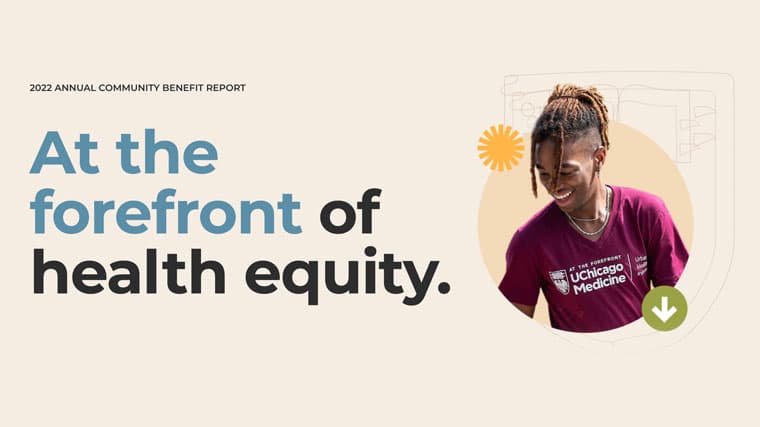New Cancer Center: Strengthening the Healthcare Ecosystem
Residents of the South Side experience a disproportionately high cancer burden. We know inequities in the burden of cancer are largely driven by the social determinants of health, including access to cancer prevention, early detection, and care. The problem is expected to grow worse.
- The CDC predicts the nation’s cancer rates will increase by 49% between 2015 and 2050.
- Cancer death rates on the South Side are twice the national average.
- Cancer is the second-leading cause of death on the South Side (behind heart disease) and the leading cause in five neighborhoods — Calumet Heights, East Side, Kenwood, South Deering and Woodlawn.
- About 56% of patients on the South Side leave the area to get healthcare. For cancer needs alone, 67% of residents who are seeking inpatient care leave the South Side.
- Research has found that patients living farther from health care facilities have worse health outcomes, longer lengths of hospital stay, non-attendance at follow-up visits, higher rates of chronic disease-related deaths, lower five-year cancer survival rates, and increased overall disease burden.
- To help address the issue of access, a collaborative of 13 South Side providers, including UChicago Medicine, is working to establish the South Side Healthy Community Organization. This group is scoped to serve over 400,000 residents and provide seamless, accessible healthcare.
At the Forefront of Health Equity: 2022 Community Benefit Report
As part of our commitment to advance health equity, the University of Chicago Medicine provided $686.2 million in benefits and services to communities on Chicago’s South Side and in the south suburbs in fiscal 2022.

